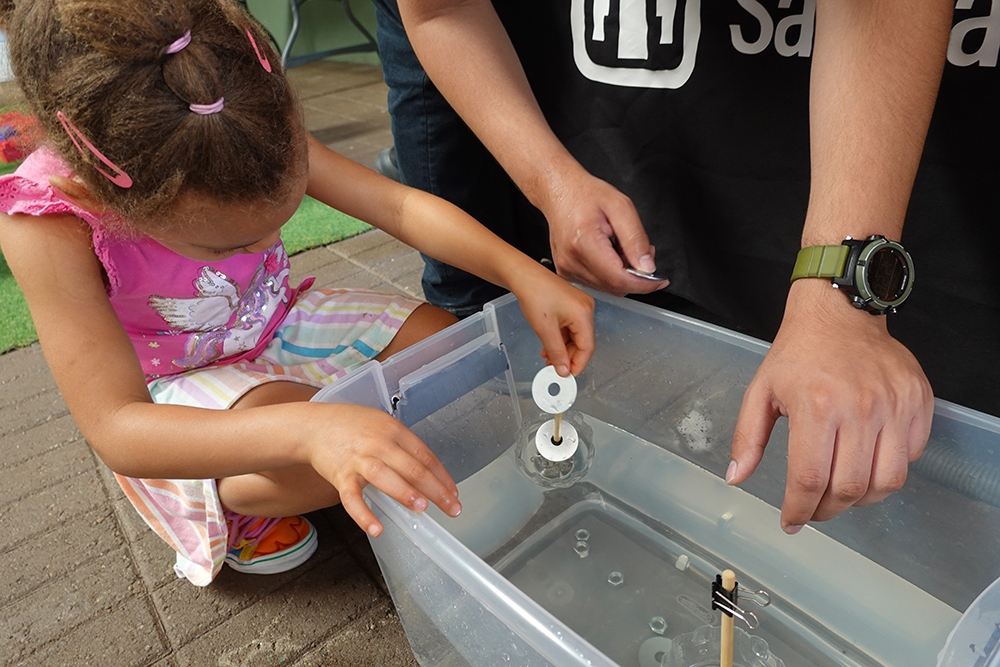
Small hands moved the washer higher up on the wooden dowel. Then, with the help of a Sandia intern, they returned the makeshift “boat” to the water and watched as it tipped over. Four-year-old Maddie might not fully understand the concept of metacentric height (aka, why you shouldn’t stand up in a canoe) demonstrated by the hands-on display, but she saw how the ship became unstable the farther away the weights moved from the boat’s center.
Metacentric height was one of the marine energy concepts children learned about at Explora’s Meet a Scientist Day. A group of Sandia summer interns, under the guidance of Kelley Ruehl, designed and created two portable kits to teach kids about marine energy at Explora Science Center and Children’s Museum in Albuquerque.
The Saturday event drew dozens of children. In addition to tipping the boat, participants were able to generate electricity with a small-wave energy converter by moving a paddle up and down to make waves. The faster they moved the paddle, the bigger the waves and the higher the reading on the attached voltmeter. Sandia researchers and interns helped the kids use the kits and answered questions about how waves and currents can be converted to energy.
This project was funded by the Water Power Technologies Office and was supported by Sandia’s Community Involvement team. “Outreach events like these,” said Rafael Baez, a Sandia intern on the Water Power team who helped develop the kits, “are important to the community as they give more exposure to STEM-related fields. It gives kids the opportunity to discover different topics at a young age, encourage curiosity and open new doors for future careers.”
The marine energy kits were designed to use common items, so they can be easily reproduced. Instructions for making the kits and activity cards explaining the marine energy concepts behind them are available in both English and Spanish. The kits will become part of Explora’s traveling outreach events making their way to numerous science nights at New Mexico schools, parks and community centers. Hundreds of children will have the opportunity to tip the ship, make waves and see science in action.